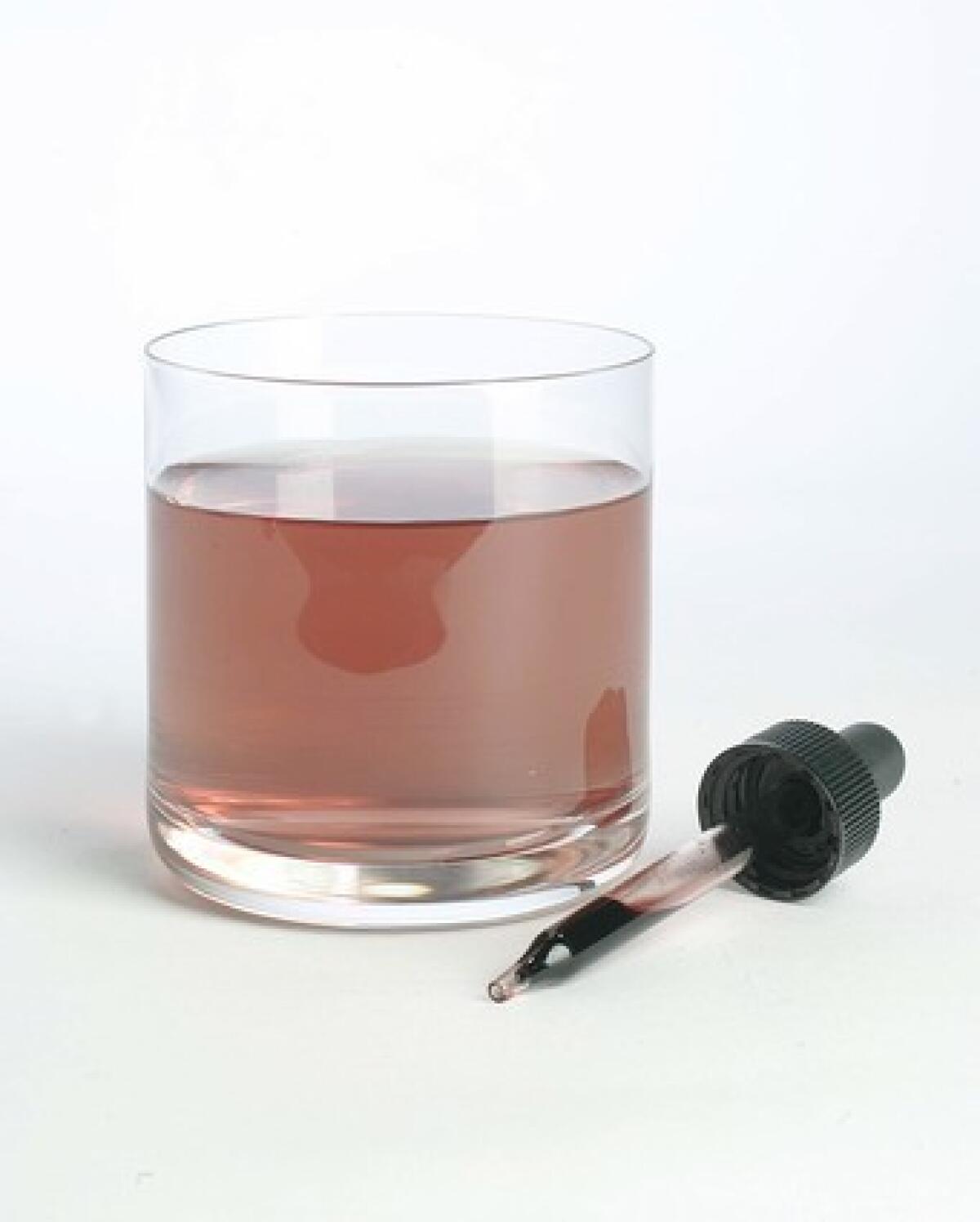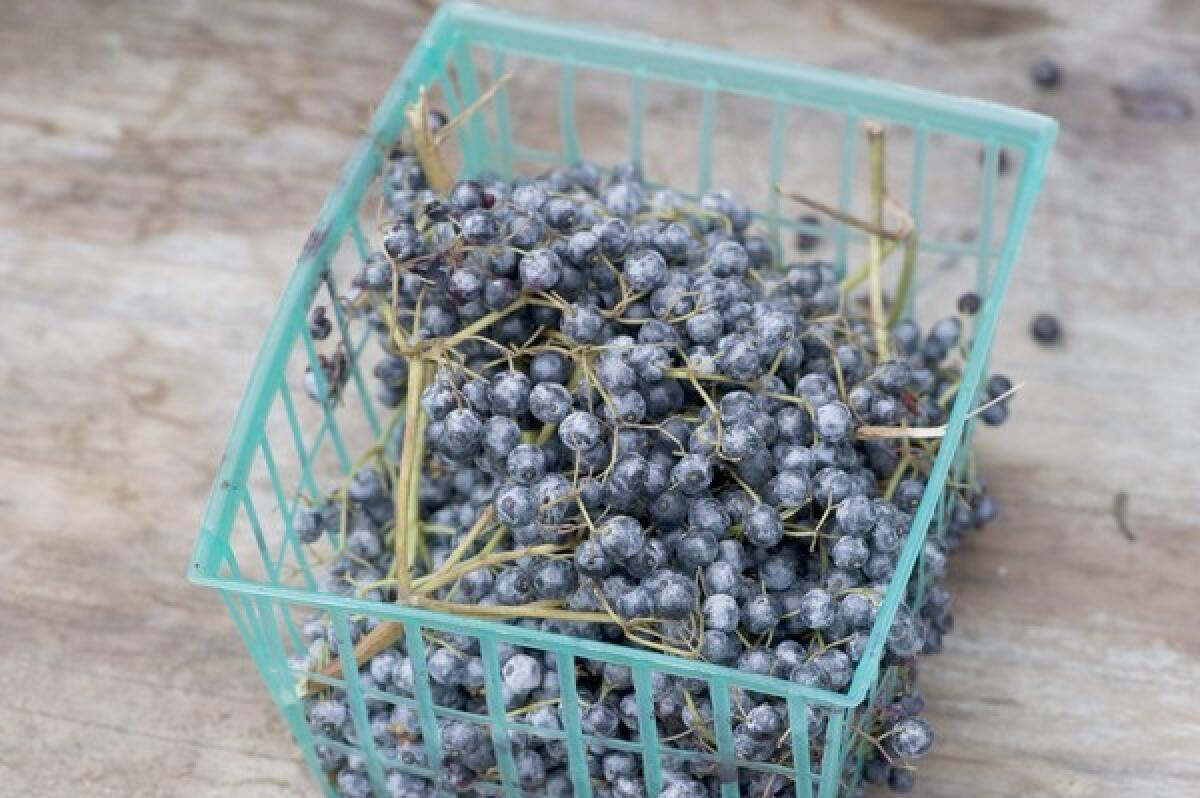No, elderberry syrup will not prevent the flu

The leaves are changing. The wind comes with a faint chill. The back-to-school sale racks have been replaced by the Halloween spread.
This can only mean one thing: Another cold and flu season is upon us.
And with it, an onslaught of dubious claims about products that allegedly cut your risk of coming down with something. Lately, it seems like every single person with some combination of the words “wellness,” “natural” or “herbal” in their Instagram bio has been touting elderberry products — various tinctures from juices and syrups to gummies and teas — as a safe, natural way to ward off a cold or the flu. More than 150,000 Instagram posts have been tagged #elderberry or #elderberrysyrup. Google searches in the U.S. for “elderberry” have spiked during the last two cold and flu seasons. Even some local newspapers have bought into the elderberry-as-flu-prevention craze.
So: Is elderberry juice really something that can replace the flu shot?
“Absolutely not. No,” said Dr. Michael Smit, the medical director of infection prevention and control at Children’s Hospital L.A. He said colleagues have reported parents asking about elderberry as an alternative treatment for the flu. The word “remedy” gets thrown around a lot in conjunction with “elderberry,” Smit said, but “we don’t really use ‘remedy’ as a medical term.”
“As far as the medical establishment goes, there is no acceptable evidence to date that elderberry is effective for prevention or treatment of influenza,” Smit said.
But that’s not to say elderberry products have no place in your medicine cabinet: “I would say that there might be some value with elderberry products as far as a soothing aspect for it, just like you would get from having a glass of herbal tea.”
Dr. Malcolm Taw, director of the UCLA Center for East-West Medicine in Westlake Village, says there’s a reason elderberry concoctions have been cited as cold and flu fighters in medical history.
“This will not replace the flu vaccine,” he said. But elderberry products “have, I’d say a complementary or adjunctive role.”
In some small-scale studies conducted in Norway, Australia and Israel, taking elderberry products has been shown to reduce the severity and duration of symptoms of colds and influenza. Of course, getting a flu shot can also do that, as can medications like Tamiflu. Elderberry products and pharmaceutical medications have never been scientifically tested directly against one another to see which works better in that regard.
At the Center for East-West Medicine, Taw said physicians try to integrate the “best of both worlds,” marrying alternative and holistic medicine with Western treatments. When it comes to the flu, “our recommendation at our center would be to get the flu vaccine, but to use elderberry to help manage or mitigate the symptoms,” he said.

The rise of home-brew elderberry products is also cause for concern, said Deborah Blum, director of the Knight Science Journalism Program at MIT and the author of two books about poisons. On Twitter, Blum responded to a now-deleted tweet from a user who shared a photo of an email allegedly from a Columbia professor who had accidentally been poisoned by homemade elderberry syrup.
“Believe it or not, I have poisoned myself,” the email began. “I am a great believer in natural this and that, and take tincture of elderberry instead of a flu shot.” The professor relates having attempted to make a syrup at home out of unripened and uncooked berries. “It turns out they have cyanide.”
Indeed they do, Blum said. Specifically, elderberries have glycocyanide, which she described as a kind of cyanide sugar. The seeds of uncooked elderberries contain this natural poison as a defense against predators. Eating an uncooked elderberry can lead to nausea, vomiting, and other unpleasant digestive side effects.
If you’re interested in adding elderberry to your cold-and-flu-season repertoire, both Blum and Taw recommend buying commercial products over making it yourself. But when it comes to preventing the flu, the best methods are the ones any doctor will recommend: Wash your hands frequently, especially after coughing. If you feel sick, stay home.
And get a flu shot.
More to Read
Sign up for The Wild
We’ll help you find the best places to hike, bike and run, as well as the perfect silent spots for meditation and yoga.
You may occasionally receive promotional content from the Los Angeles Times.











